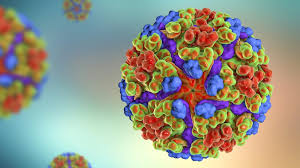Valneva SE , a specialty vaccine company, announced the submission of label extension applications to the European Medicines Agency (EMA) and Health Canada for its chikungunya vaccine, IXCHIQ®. These applications aim to expand the use of IXCHIQ® to adolescents aged 12 to 17 years in Europe and Canada. Additionally, the Canadian submission includes pivotal two-year antibody persistence data, a key differentiator for the vaccine. Valneva plans to submit data to the U.S. Food and Drug Administration (FDA) later this year to support a similar label extension in the U.S.
IXCHIQ® is the world’s first and only licensed chikungunya vaccine, addressing a significant unmet medical need. The vaccine is currently approved in the U.S., Europe, and Canada for the prevention of disease caused by the chikungunya virus in individuals aged 18 years and older. Valneva’s U.S. launch is ongoing, with first sales expected in Canada and Europe by the fourth quarter of 2024.
In addition to driving sales, Valneva is focused on expanding access and indications for IXCHIQ®. The company anticipates marketing authorization in Brazil by the second half of 2024 and recently extended its partnership with The Coalition for Epidemic Preparedness Innovations (CEPI) to support broader access to the vaccine in Low- and Middle-Income Countries (LMICs), post-marketing trials, and potential label extensions for children, adolescents, and pregnant women. CEPI will provide Valneva with up to $41.3 million in additional funding over the next five years, with support from the European Union’s Horizon Europe program.
Juan Carlos Jaramillo, M.D., Chief Medical Officer of Valneva, stated, “Given the substantial risk that chikungunya poses to individuals in endemic regions, it is vital to make the vaccine available to all age groups. Ensuring broader accessibility can provide crucial protection and help alleviate the burden of this debilitating illness, which is now spreading to previously unaffected areas. The long-term durability of the immune response is especially important for countries where consistent access to immunization may be challenging."
The EMA and Health Canada applications are supported by positive Phase 3 adolescent data, reported in May 2024, which showed a high and sustained immune response in 99.1% of adolescents after a single dose of IXCHIQ®. The vaccine was generally well tolerated, as recently highlighted in an article published by The Lancet Infectious Diseases, which noted similar results in adolescents aged 12 to 17, regardless of prior chikungunya infection.
Health Canada’s submission also includes two-year antibody persistence data, showing that 97% of participants maintained a robust immune response after 24 months, with similar durability across all age groups. Valneva expects to release 36-month persistence data later this year.
